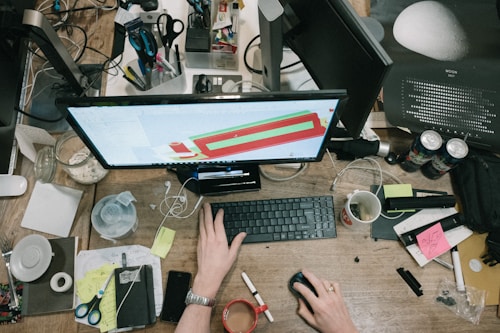Balancing work responsibilities with personal life can be challenging, often leading to stress and burnout. Implementing effective stress-relief techniques is crucial for maintaining productivity and well-being. Here are some practical strategies for busy professionals to manage stress and improve their overall quality of life.

1. Mindful Breathing Exercises
Mindful breathing is a simple yet powerful technique to reduce stress. Practicing techniques such as diaphragmatic breathing or the 4-7-8 method (inhale for 4 seconds, hold for 7 seconds, exhale for 8 seconds) can quickly calm your mind and body. Incorporate these exercises into your daily routine or use them during particularly stressful moments to regain composure.
2. Regular Physical Activity
Exercise is one of the most effective ways to combat stress. Physical activity releases endorphins, which are natural mood lifters. Aim for at least 30 minutes of moderate exercise, such as walking, jogging, or yoga, most days of the week. Even a quick walk during your lunch break can make a significant difference.
3. Time Management Skills
Improving your time management skills can help reduce stress by making your workload more manageable. Use tools like Trello or Asana to prioritize tasks and keep track of deadlines. Breaking larger projects into smaller, more manageable tasks can also prevent feelings of being overwhelmed.
4. Healthy Eating Habits
Nutrition plays a significant role in how we handle stress. Eating a balanced diet rich in fruits, vegetables, lean proteins, and whole grains can boost your energy levels and improve your mood. Avoid excessive caffeine and sugar intake, as they can exacerbate stress and anxiety.
5. Mindfulness Meditation
Mindfulness meditation involves focusing on the present moment without judgment. Set aside a few minutes each day to sit quietly and focus on your breathing. Apps like Headspace and Calm offer guided meditations that can help reduce stress and improve mental clarity.
6. Adequate Sleep
Lack of sleep can significantly increase stress levels. Aim for 7-9 hours of quality sleep each night. Establish a regular sleep schedule, create a calming bedtime routine, and ensure your sleep environment is comfortable and free from distractions. Resources like the National Sleep Foundation provide valuable tips for improving sleep hygiene.
7. Social Support
Having a strong support system can help you manage stress more effectively. Spend time with family and friends, or consider joining a support group. Talking about your stressors with someone you trust can provide new perspectives and solutions. Engaging in social activities, even virtually, can boost your mood and provide a sense of connection.
8. Hobbies and Leisure Activities
Engaging in hobbies and leisure activities can be a great way to relieve stress. Whether it’s reading, gardening, painting, or playing a musical instrument, find activities that you enjoy and make time for them regularly. Pursuing interests outside of work can provide a much-needed mental break.
9. Professional Help
If stress becomes overwhelming, consider seeking professional help. A therapist or counselor can provide strategies and support tailored to your specific needs. Online platforms like BetterHelp and Talkspace offer convenient access to licensed professionals who can help you manage stress effectively.
10. Relaxation Techniques
Incorporate relaxation techniques such as progressive muscle relaxation, visualization, and aromatherapy into your routine. These methods can help reduce physical tension and promote a sense of calm. For example, using essential oils like lavender or eucalyptus in a diffuser can create a relaxing environment.
11. Regular Breaks
Taking regular breaks throughout your workday is essential for maintaining productivity and mental health. The Pomodoro Technique involves working for 25 minutes and then taking a 5-minute break. Use breaks to stretch, take a short walk, or practice mindfulness exercises to refresh your mind.
12. Limit Screen Time
Excessive screen time can contribute to stress and eye strain. Set boundaries for your use of electronic devices, especially before bedtime. Consider implementing a digital detox by reducing non-essential screen time and focusing on offline activities that you enjoy.
Integrating Stress-Relief Techniques into Your Routine
Incorporating these stress-relief techniques into your daily routine can help you manage stress more effectively and improve your overall well-being. Remember, the key is to find what works best for you and make it a regular part of your life.
Download StressBuddy
for Less Stress, Buddy
StressBuddy is free
